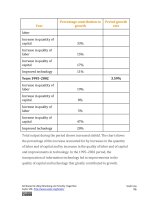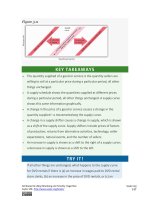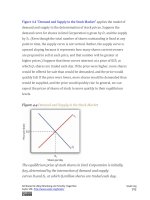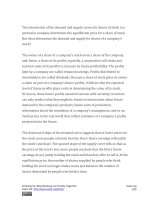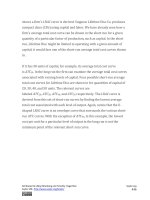Authors libby rittenberg 713
Bạn đang xem bản rút gọn của tài liệu. Xem và tải ngay bản đầy đủ của tài liệu tại đây (345.59 KB, 1 trang )
If the quantity of oil in the earth is declining and the demand for this oil is
increasing, then it is likely that the price of oil will rise in the future.
Suppose you expect the price of oil to increase at an annual rate of 15%.
Given your expectation, should you pump some of your oil out of the
ground and sell it? To answer that question, you need to know the interest
rate. If the interest rate is 10%, then your best alternative is to leave your
oil in the ground. With oil prices expected to rise 15% per year, the dollar
value of your oil will increase faster if you leave it in the ground than if you
pump it out, sell it, and purchase an interest-earning asset. If the market
interest rate were greater than 15%, however, it would make sense to
pump the oil and sell it now and use the revenue to purchase an interestbearing asset. The return from the interest-earning asset, say 16%, would
exceed the 15% rate at which you expect the value of your oil to increase.
Higher interest rates thus reduce the willingness of resource owners to
preserve these resources for future use.
Figure 13.8 Future Generations and Exhaustible Natural Resources
Attributed to Libby Rittenberg and Timothy Tregarthen
Saylor URL: />
Saylor.org
713
